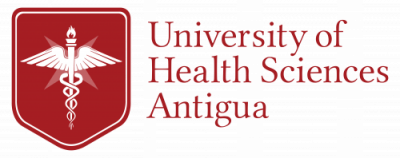What’s the difference between family and internal medicine?
This is perhaps one of the most confusing questions for many students (and patients alike), particularly when referring to internists who practice general internal medicine. However, there are fundamental differences in the focus, training, and patient care activities of these two specialties.
Internal Medicine: Primary Care for Adults
Although the length of basic training for both is three years, internal medicine focuses only on adults. Required internal medicine training focuses on common general medical conditions. Internal medicine training must also take place in both outpatient and inpatient settings. At least one year of internal medicine training must involve caring for hospitalized patients, with at least three months of work in intensive/critical care settings.
Because internal medicine education focuses only on adults and includes experience in both general medicine and the internal medicine subspecialties, training in adult medical issues is comprehensive and deep. Internists are well prepared to provide primary care to adults through their outpatient continuity experience during training, particularly for medically complicated patients.
As of 2020, internal medicine physicians earned an average salary in the US of $251,000 per annum. There are currently 563 residency programs in internal medicine in the US. Plus, internal medicine allows you the chance to specialise in a range of subspecialties recognised by the American College of Physicians.
Medical students can join the American College of Physicians for free, and start learning more about a career in internal medicine even while in medical school.
Family Medicine: Cradle to Grave Care
Family medicine training is typically based in dedicated outpatient training centres in which residents work throughout the course of their training.
Trainees are required to provide acute, chronic, and wellness care for a panel of continuity patients, with a minimum number of encounters being with children and older adults. Family medicine trainees are also required to have at least 6 months of inpatient hospital experience and 1 month of adult critical care, and up to 2 months of care for children in the hospital or emergency settings.
Family medicine trainees must also have experiences in behavioral health issues, common skin diseases, population health, and health system management, and there is a particular emphasis on wellness and disease prevention.
Family medicine education is broader in nature than internal medicine since it involves training in the care of children and procedures and services often provided by other specialties. This breadth of education equips family physicians to deal with a wide range of medical issues, and this broad skill set may be particularly valuable in communities or geographical areas where certain specialists and subspecialists may not be available.
As of 2020, family medicine physicians earned an average salary in the US of $234,000 per annum. There are currently 692 residency programs in family medicine in the US, making it one of the most accessible training programs available. Plus, family medicine physicians can complete a range of fellowships to gain special skills in areas like obstetrics and sleep medicine.
Students who have an interest in family medicine, can join the American Academy of Family Physicians for free while still medical students, and thus begin to learn more about this exciting specialty.
Live Your Dream of Becoming a Physician
As the second oldest private medical university in the Caribbean Basin we know what it takes to succeed.
Whether you want to practice internal medicine, family medicine, general surgery, or any of the multiple specialties that make a difference in the lives of patients every day, UHSA can help you live your dream!
Accelerated Premedical Program
If you are a high school graduate, or a university graduate who lacks the premedical pre-requisite courses, why not join our premedical program? It will give you all the credits you need to be promoted to our world-class MD program.
If you are a university graduate who has the premedical pre-requisites, then look at direct entry into our MD program, where you will learn to be not only a physician, but a healthcare leader.
Earn Your MD and Masters of Public Health
We also offer a joint MD/MPH program. Our joint MD/MPH program is great for those who want to enhance their credentials when applying for residency, want to enter a primary care residency program that values prevention, want to undertake training in preventative medicine, or who want a career in global public health.
Contact our admissions team to learn more about living your dream!

